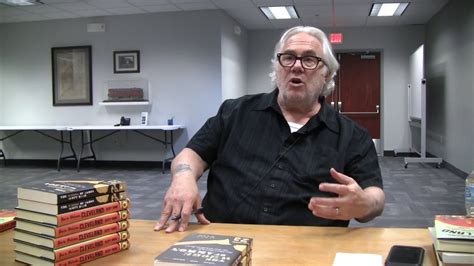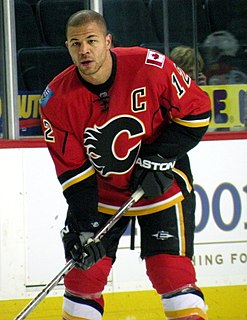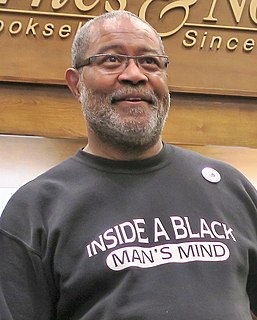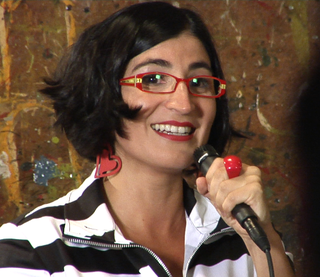A Quote by Mike Epps
Every now and then you get a nice Jewish kid who likes black people and they would come in, and it would be a stream of them, and have black friends and really feel the black struggle on the acting tip and it's a reason why all of us are not dying in the movie.
Related Quotes
I wanted to make sure the focus [in The Land] was on human beings themselves and their decisions, but still connected to the urban environment that people associate as being black. I think I was able to make a film without commenting on "black this or black that" and you still feel the presence of it. There's no one character who's saying "we're all black and we're all in this struggle." It's that you just feel it. Some of that is because we get the sense from a lot of independent films that black people struggle all the time.
As a black person on the outside, because there's so much black art and so much of black people's work circulating, so many people imitating what black people do, you would think that there'd be more black people on the business side. It didn't cross my mind that every label head, for the most part, is a white guy.
I would say I'm black because my parents said I'm black. I'm black because my mother's black. I'm black because I grew up in a family of all black people. I knew I was black because I grew up in an all-white neighborhood. And my parents, as part of their protective mechanisms that they were going to give to us, made it very clear what we were.
A Murphy [Eddie Murphy] movie is like a Sidney Poitier comedy - he's that intensely good... He revolutionized acting. He's literally black Brando. Before Eddie Murphy, there were two schools of acting for a black actor: Either you played it LIKE THIS or youplayeditlahkdis. He was the first black guy in a movie to talk like I am talking right now. That did not exist for black actors before him.
Certainly I feel like I'm the tip of the arrow at times because certainly the national media wants to talk about the fact that I'm a black Republican and some people think of that as zany that a black person would be a conservative but to me what is zany is any person black, white, red, brown or yellow not being a conservative.
Growing up, I was always the only black kid on my team and (sometimes) I'd get questions from my friends when I'd say, `I want to be in the NHL' and they'd say, `Well, there are no black people or not very many in the NHL' and as a kid, you'd wonder why. But overall, I didn't really face any racial difficulties. Nothing too bad or too lasting.
Son, you can't go around painting yourself black, you hear?" "Why not, Papa?" "Because they'll take you away." "Why?" "Because you shouldn't want to be like black people or Jewish people or anyone who is...not us." "Who are Jewish people?" "You know my oldest customer, Mr. Kaufmann? Where we bought your shoes?" "Yes." "Well, he's Jewish." "I didn't know that. Do you have to pay to be Jewish? Do you need a license?" ..... "...you've got beautiful blond hair and big safe blue eyes. You should be happy with that; is that clear?
I'm always thinking about what a black lady would think about what I'm doing, just because I feel like they have such great taste, mostly because as black women, we've spent a lot of time downloading what a white male narrative is, so in my head, I'm like, 'If a black woman likes it, if she responds to it, then it's probably pretty damn great.'
The Organization of Afro-American Unity was an organization that was a secular group. It largely consisted of people that we would later call several years later Black Powerites, Black nationalists, progressives coming out of the Black freedom struggle, the northern students' movement, people - students, young people, professionals, workers, who were dedicated to Black activism and militancy, but outside of the context of Islam.
I knew that the black struggle wasn't my struggle. But I felt like it was my-struggle-adjacent, you know? I've always said that if you turn the dial in one direction, a Muslim is a Jew is an East Asian person is a Native American and so on. I feel very much that all of these struggles are kind of the same and - Hillary Clinton actually said this recently - when you get rid of one barrier, it opens up the gates for a whole bunch of people you didn't even know would benefit from it. So not fighting for the black struggle is like not fighting for the Muslim struggle.
White people scare the crap out of me. I have never been attacked by a black person, never been evicted by a black person, never had my security deposit ripped off by a black landlord, never had a black landlord, never been pulled over by a black cop, never been sold a lemon by a black car salesman, never seen a black car salesman, never had a black person deny me a bank loan, never had a black person bury my movie, and I've never heard a black person say, 'We're going to eliminate ten thousand jobs here - have a nice day!'
Actually we've had a black bourgeoisie or the makings of a black bourgeoisie for many more decades.In a sense the quest for the emancipation of black people in the US has always been a quest for economic liberation which means to a certain extent that the rise of black middle class would be inevitable. What I think is different today is the lack of political connection between the black middle class and the increasing numbers of black people who are more impoverished than ever before.
People don't realize it hurts my feelings when someone looks at my hair or my eyes, and says, 'But you're not actually black. You're black, but you're not black black, because your eyes are green.' I'm like, 'What? No, no, I'm definitely black.' Even some of my closest friends have said that. It's been a bit touchy for me.


































